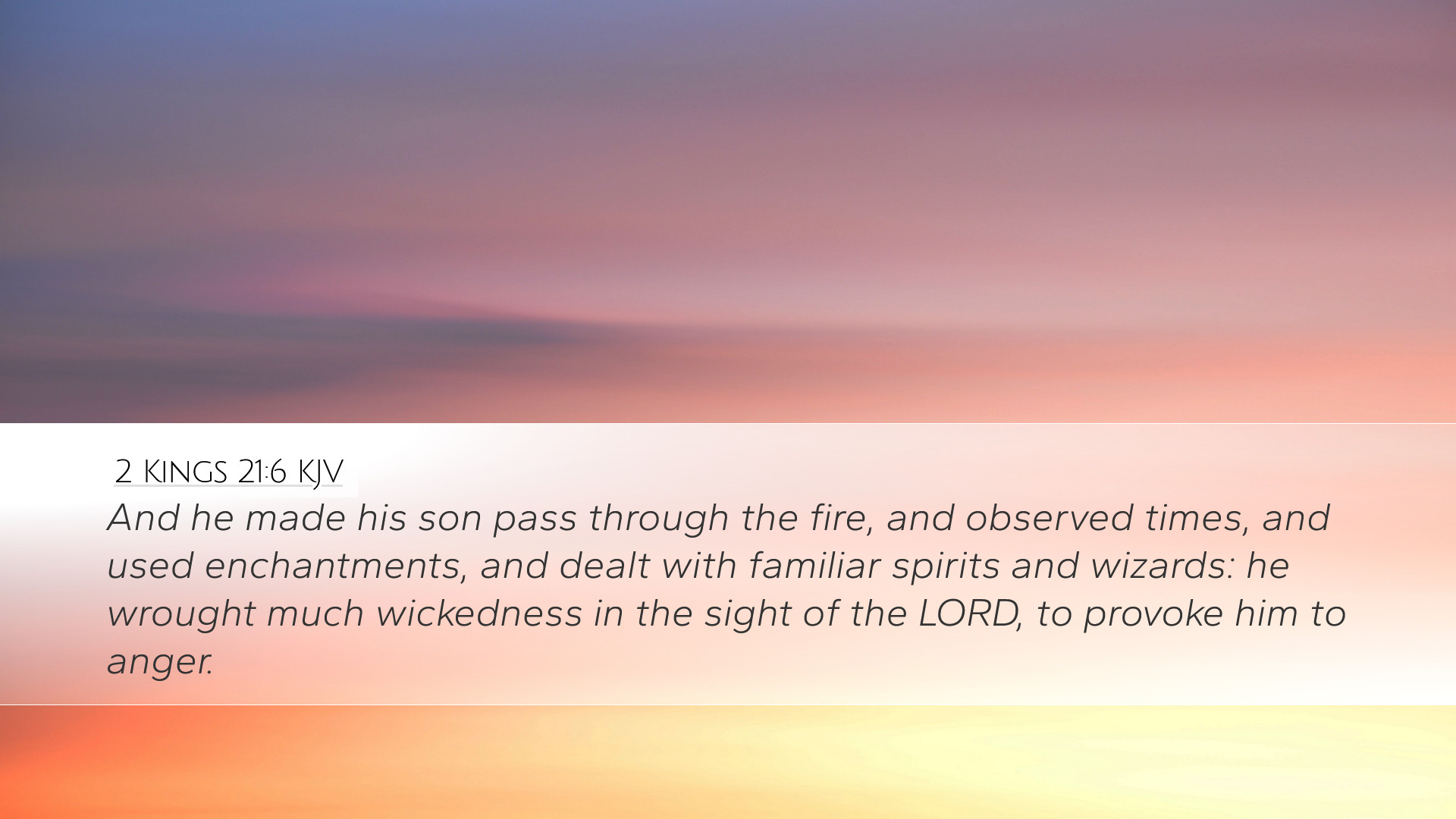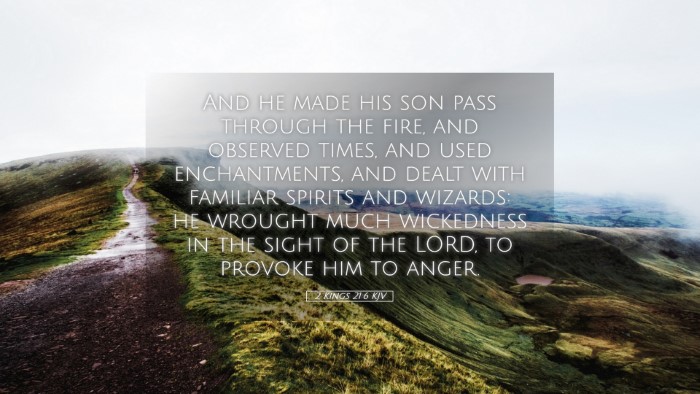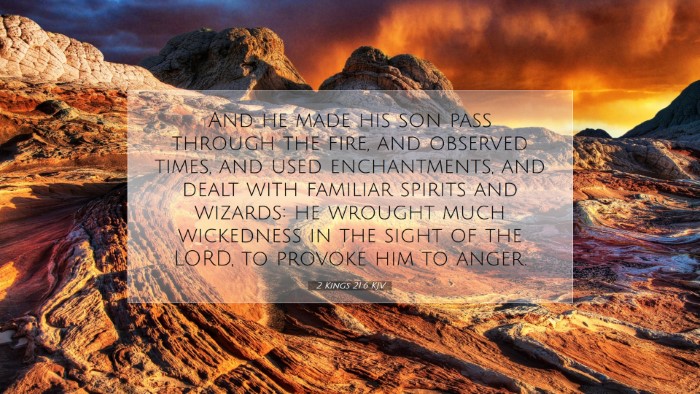Commentary on 2 Kings 21:6
2 Kings 21:6 states:
“And he made his son pass through the fire, and observed times, and used enchantments, and dealt with familiar spirits and wizards: he wrought much wickedness in the sight of the LORD, to provoke him to anger.”
Introduction
This verse captures a pivotal moment in the reign of Manasseh, the king of Judah, reflecting a deep moral and spiritual decline. The actions described are emblematic of the idolatry and apostasy that characterized his reign and the grave consequences that followed for the nation of Judah.
The Weight of Apostasy
According to Matthew Henry, the phrase “made his son pass through the fire” indicates a chilling practice of child sacrifice. This was directed to the god Molech, a Canaanite deity, and it signified the depths to which Manasseh had fallen. Henry emphasizes that this act was not only an abomination but also a grievous violation of God's commandments regarding the sanctity of life.
Occult Practices
Albert Barnes comments on the observing of “times” and “enchantments” as indicating involvement in astrology and the occult. The term used suggests a systematic reliance on omens and magical practices, reflecting a significant deviation from the worship of Yahweh. Barnes highlights how such practices were condemned by the Law of Moses (Deuteronomy 18:10-12) and resulted in spiritual and social desolation.
The Role of Familiar Spirits
Adam Clarke elaborates on the mention of “familiar spirits and wizards.” He notes that these figures were considered to be mediums engaging with the dead or demonic entities. Clarke points out that the acceptance of such practices demonstrated an outright rebellion against the divine directives that governed Israelite worship, further indicating Manasseh's serious moral corruption.
Provoking the LORD to Anger
The concluding part of the verse communicates the gravity of Manasseh's actions, stating, “he wrought much wickedness in the sight of the LORD.” Here, Matthew Henry asserts that Manasseh's reign was marked by extensive evil; his sins not only brought about personal judgment but also set in motion the eventual destruction of Judah. This reflects a biblical principle that societal sin evokes divine wrath and judgment.
Theological Understanding
The combination of idolatry, the occult, and child sacrifice illuminates the severe consequences of forsaking God. Albert Barnes draws attention to the theological implications of such practices—essentially, they represent a rejection of God's sovereignty and a dangerous embrace of surrounding pagan cultures. The text serves as a warning to all ages about the perils of syncretism and the compromises that can creep into the faith life if vigilance is not maintained.
Historical Context
This verse reflects a historical era marked by internal conflict and external pressures. The socio-political landscape of Judah during Manasseh’s reign was tumultuous. According to Adam Clarke, Manasseh's actions can be interpreted as attempts to secure political gain through the appeasement of powerful nations and supernatural forces. The intertwining of spiritual decay with national identity reveals a complex relationship that ultimately led to catastrophic consequences for the kingdom.
Application for Today
The relevance of 2 Kings 21:6 extends beyond historical analysis. For contemporary pastors, students of the Bible, and theologians, the verse is a profound reminder of the dangers posed by compromising faith for cultural acceptance. Matthew Henry and Albert Barnes both offer insights that remind us of the importance of adhering strictly to scriptural guidance and the critical need for discernment in an age overflowing with competing ideologies and practices.
- Call to Repentance: The actions of Manasseh illustrate the need for sincere repentance and a return to covenant obligations.
- Spiritual Vigilance: The prevalence of occult practices challenges modern believers to remain watchful and discerning.
- Emphasis on Sanctity of Life: The tragedy of child sacrifice calls Christians to advocate for the sanctity of life in all contexts.
Conclusion
2 Kings 21:6 serves as both a historical account and a poignant theological lesson. The verse encapsulates the multifaceted nature of sin, the severe implications of leading a nation away from God, and the urgent need for sincere devotion and obedience among God's people. The insights from public domain commentaries provide depth to our understanding and encourage a reflective approach as we strive to uphold the tenets of our faith in a complex world.


